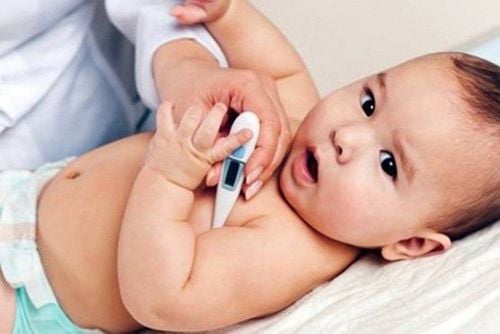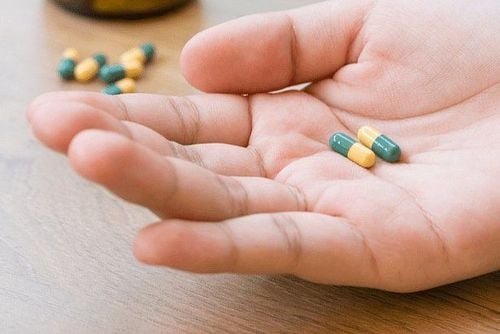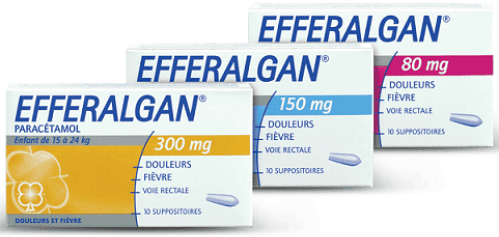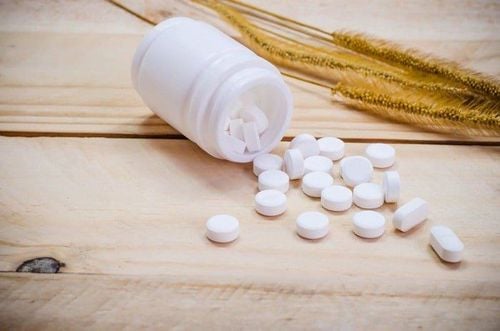This is an automatically translated article.
The article was written by Pharmacist Nguyen Thu Giang - Faculty of Pharmacy - Vinmec Times City International HospitalFever is a condition in which the body's temperature rises above the normal limit of an individual. This is a defense response that increases the immune response, increasing the immune response against invading agents such as bacteria and viruses.
When a child has a high fever, it can increase hypersensitivity reactions, shock, dehydration, electrolyte disturbances, febrile convulsions, cause some neurological disorders such as brain damage, delirium, irritability, hallucinations, heart failure, respiratory failure. In addition, high fever makes children lose appetite, fatigue, exhaustion...
1. When to reduce a child's fever?
To determine whether the child has a fever or not, a thermometer should be used to measure the body temperature, it can be preliminary determined by touching the child's armpits, not touching the limbs because when the fever is high, the limbs may be cold, making the assessment fever is wrong.
Identify a child with a fever when the body temperature is as follows:
Rectal temperature ≥ 37.8°C (100°F) Oral temperature ≥ 37.5°C (99.5°F) Armpit temperature ≥ 37.2°C (99°F) Ear temperature ≥ 37.2°C (99°F) To avoid complications from high fever, keep your child's body temperature between 36.4°C - 37, 2°C
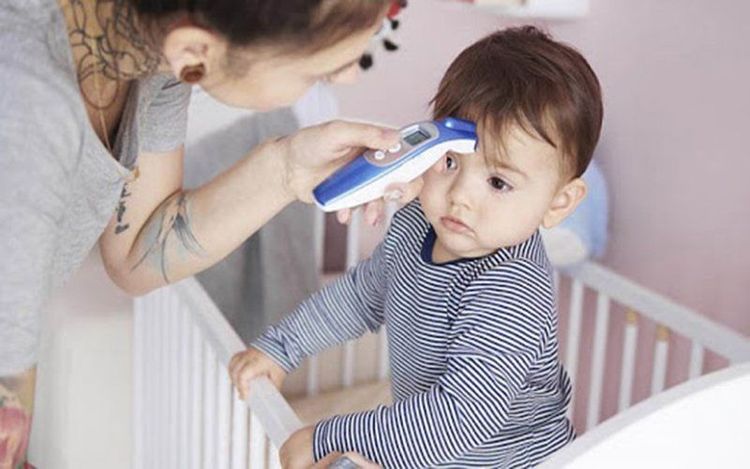
2. Non-pharmacological antipyretic care measures
Take off some clothes, wear light, thin clothes. Stay in a cool room, avoid smothering the child. Give the child enough water to drink, give fluids only when the child cannot drink or is seriously ill. Apply warm water about 37°C to the child. Forehead, armpit, groin positions, turning towels and dipping in water continuously When using non-medical measures but the child's body temperature does not lower or lower slowly, additional antipyretic drugs should be used.

3. Note when giving children fever-reducing medicine?
Commonly used antipyretics for children are paracetamol , ibuprofen , but caution should be exercised in some cases such as drug allergy , liver failure , kidney failure ... so parents should take their child to a doctor if they do not know the child well . Which antipyretic should be used? Medicines for children are usually dosed according to the weight of the child, so it is necessary to calculate the exact dose, to avoid under or overdosing. Antipyretic drugs have many brand-name drugs with the same active ingredients, so caution should be taken to avoid using many brand-name drugs at the same time, causing overdose and drug poisoning. Aspirin should not be used to lower a child's fever because it can cause Reye's syndrome.
Please dial HOTLINE for more information or register for an appointment HERE. Download MyVinmec app to make appointments faster and to manage your bookings easily.





